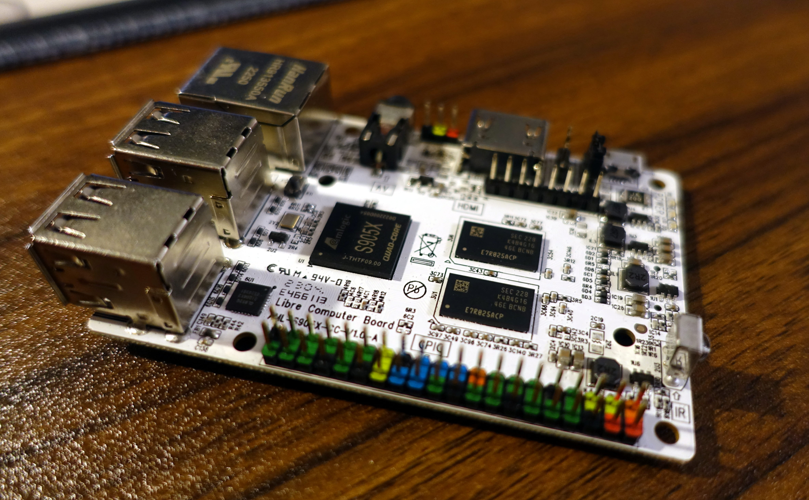Scaling Down to Scale Up: The Energy-Efficient Approach Using Le Potato SBC as a Raspberry Pi Alternative
Single Board Computers (SBCs) are carving out their niche in the world of computing with a blend of energy efficiency and sufficient performance for specific tasks. In this blog post, I dive into my recent experience where I’ve found success in deploying the Libre Computer “Le Potato” SBC to handle essential yet lightweight workloads.
One host - one workload!

Qualification
I went into this quest with a couple a requirements; essentially:
- A reasonable price per board, and no supply chain issue.
- A standard - or popular - form factor that would make finding cases and accessories easy.
- A well-performing platform, with low power consumption and good OS support available.
Let’s look at some options.
The Energy-Efficient Edge of SBCs
Here are some quick reference numbers on power consumption, that I could gather and that help put things in perspective:
- Intel NUC: Ranges from 6W to 90W
- ODROID H3: About 10W to 30W
- OrangePi Zero: As low as 1W to 2W
- OrangePI 5+: Around 2W to 8W
- Le Potato: Generally around 5W
Operating System Choices for SBCs
A well-supported OS is crucial:
- Ubuntu: Directly supports Raspberry Pi. Ubuntu for Raspberry Pi.
- Armbian: Ensures top-notch support if your SBC is on the Platinum Support list, indicating close collaboration between the manufacturer and the Armbian project.
Beware of the lure of manufacturer-provided OS builds that may fall short in support and updates. My prior setback with an OrangePi Zero’s inadequate “LTS” label serves as a cautionary tale for diligent research prior to settling on an SBC.
Why Le Potato Got My Vote
The Benefits
- Processor Advantage: The Amlogic S905X processor in the Le Potato aligns well with Pi3 applications, ensuring broad software compatibility.
- Ecosystem: The shared form factor with the Raspberry Pi 3B+ grants access to a wide range of cases and accessories to house your unit.
- Stock Reliability: No headaches over availability or inflated costs thanks to scalpers.
- Hardware Compatibility: Offers robust EMMC connection options for storage.
- Software Stability: Upstream support from Libre Computer to the Linux kernel translates to consistently good compatibility.
- Energy Savings: Operates within the 2W range, ideal for low-energy, dedicated tasks.
The Operating System: Armbian
- Debian Base: Armbian is built on Debian, renowned for its stability and security.
- Timely Updates: Tracking Debian closely, Armbian provides security patches promptly.
- SBC Optimization: The distro includes essential kernel patches and modules for Le Potato performance.
- Open Source: Using an open source distro aligns with a commitment to transparency and community support.
Putting Le Potato to the Test
It hasn’t been long, but the results are in: great stability. My Le Potato SBCs run reliably under minimal load, managing tasks such as:
- SSH jump host: A secure entry point into my network.
- Ansible Tower: Automation for app deployment, updates, and inventory.
- Netdata master node: Central monitoring interface for all of my infrastructure.
Additionally, I’ve designated one unit as a backup DNS server, and it’s met expectations flawlessly. Up next is deploying another unit for failover support in my FreeIPA setup.
For small loads and as a failovers, they’ve been a suitable choice – Le Potato efficiently idles away, consuming minimal power. Here’s a glimpse of the server load. Not much to see, and that’s how we like it!

Stay tuned for further insights as these tiny but mighty workloads continue to perform on the Le Potato SBC.